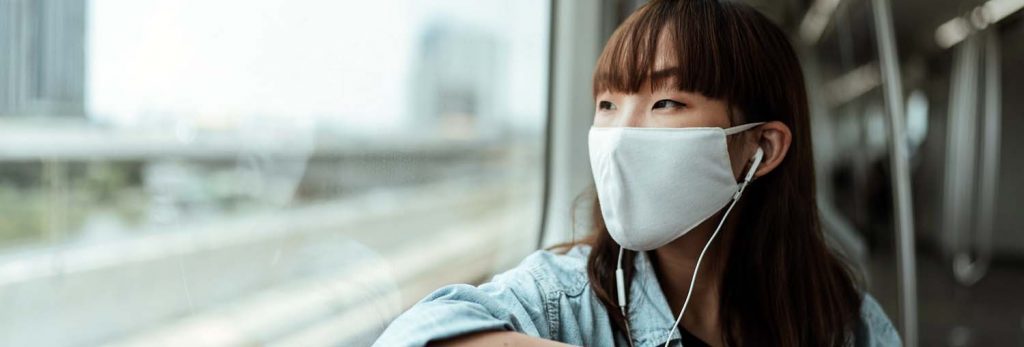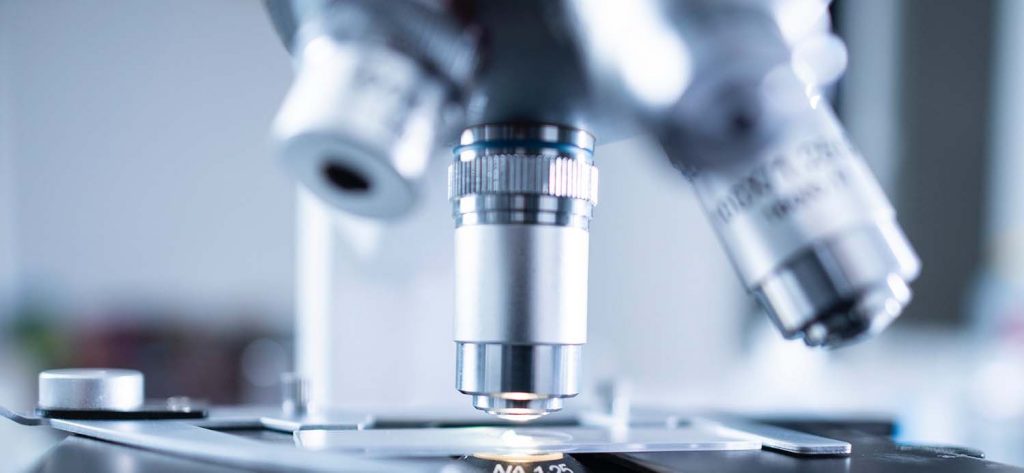Vaccine Q&A: Returning to Normal and Planning for the Future

In this post, we focus on how long it might take for things to return to normal, and what we can do to be better prepared for the next pandemic.
To address those questions, we spoke with Matt Koci, a virologist and immunologist whose work focuses on host-microbe interactions in birds. Koci is a professor in NC State’s Prestage Department of Poultry Science.
This post is part of a series of Q&As in which NC State experts address questions about the vaccines on issues ranging from safety to manufacturing to how the vaccines will be distributed.
The Abstract: So now that the vaccines are being rolled out, how soon can we expect things to go back to normal?
Matt Koci: I hate to be the bearer of bad news, but it’s going to be a while AND it’s going to get a lot worse before it gets better. Now is going to be the most critical and most challenging time in our lives. We’re all exhausted from this pandemic. We’re getting complacent. It’s the holidays and we want – we need – to feel some sense of normalcy again. And now with news that vaccines are around the corner, it’s going to be really hard to resist the temptation to spike the ball and walk off the field. But we’re only at the 40-yard line.
Rolling out the vaccine to 330 million people is going to be a bigger logistical challenge than D-Day. People need to recognize that it is going to take months to make all the doses we need. It’s going to take even longer to figure out how to get it to the people who need it.
It is critical that people keep wearing masks, keep washing hands, and keep socially distant.
This isn’t exactly apples to apples, but it might help give you a sense of the size of the problem: think about how many people in the U.S. each day wake up and think “I need to go and get a COVID-19 test,” and how long those lines are. In North Carolina, over the past week or so we’ve averaged around 50,000 tests per day. That’s 0.6% of the state’s population. At 50,000 people per day, it would take 160 days to get everyone in our state one shot of the vaccine.
It takes two shots for most of the vaccines, and you need to get the same vaccine for both shots. That means you have to keep track of who’s been vaccinated, make sure they show up for their second shot, and make sure they get the same one both times.
This is all doable, but it’s not as simple as ordering a burrito on DoorDash.

During this process, it is critical that people keep wearing masks, keep washing hands, and keep socially distant. And not just those who are doing it already. We need more people to be doing it. Dying from this virus is horrible enough. Getting sick and dying from it now, when there’s a vaccine a few months away, is especially cruel. We have to keep our eye on the ball. We need to redouble our efforts to keep each other safe.
We also need to keep in mind that how long it takes to return to some semblance of normalcy is dependent on how many people get vaccinated. Vaccination rates in the U.S. and around the world will influence how long it takes for this to be over. Recent surveys suggest only around 50% of Americans say they will get the vaccine. If that number doesn’t go up, it will take a lot longer to get back to “normal.” We need to do everything we can to make it as easy as possible for people to get vaccinated. Make sure people understand when and where they can get vaccinated, and make sure it doesn’t cost them anything to get it.
We also need to remember that a pandemic by definition is a global event. We won’t be back to normal by just focusing on controlling things here. We’re also dependent on vaccine rates around the world. We’re a global economy. We need our global trading partners to return to normal for our economic recovery. We also need it for broader international stability. As we get more and more people vaccinated here in the U.S., we need to turn our attention to other countries to make sure they are protected too.
If we assume that since we got a vaccine to this virus that we’ll get a vaccine to the next one, we’re doomed to relive this nightmare.
With a little luck, and vaccine-driven herd immunity, we’ll be able to start going back to indoor restaurants, movie theaters and schools by late summer or early fall of 2021. But we’ve lost over 300,000 people [as of Dec. 14, 2020], and will likely lose at least 200,000 more before this is all over. Nineteen years after 9/11 we still stop and read off all the names of the 2,977 lost that day. We’re now losing more than that every day.
We should never go back to “normal,” but my greatest fear is we will. Nature has thrown something new at us every couple of years: Bird flu in 1997, Nipah virus in ’98-’99, SARS in 2002, Bird flu 2004-today, Swine flu in 2009, MERS in 2012, Ebola 2013-2016, Zika 2015, Ebola 2017, 2018, 2019, 2020. That’s not to mention antibiotic-resistant bacteria and a ton of other stuff I know I’m forgetting. If we go back to normal, if we assume that since we got a vaccine to this one that we’ll get a vaccine to the next one, we’re doomed to relive this nightmare.
TA: What should we do to prepare and hopefully prevent the next pandemic?
Koci: This is the best justification for the funding priorities the federal government used to put into basic science discoveries. We still invest in science, but not at the level other countries do (relative to GDP), and not compared to the investments made by the WWII generation. Maybe that is because they were also the last generation to have experienced a pandemic, a major environmental crisis (the dust bowl) and a depression – as well as smallpox and all the childhood diseases we have trouble getting people to get vaccinated for today.

People need to recognize that we have a vaccine in record time largely because of the investments we made in from the 1950s through the 1980s. Those investments established the infrastructure and foundational scientific understanding that today’s scientists leveraged to meet this moment. If we’re going to be ready for the next pandemic, which hopefully will be in another 100 years, we need to make sure we set up our grandkids and great-grandkids as well as we were set up by our grandparents and great-grandparents. The old adage is to “leave it better than you found it.”
TA: Is there anything else you’re worried about?
Koci: Yes. Pursuing nationalistic vaccine policies could make things worse before the COVID-pandemic 19 is over.
I know we’re all sick of hearing “we’re all in this together,” but in the end that mindset is what got us a vaccine.
This has been a worldwide disaster, and the solutions have come from the world’s scientists working together. Scientists have focused on science. They have collaborated and shared information and reagents regardless of borders and nationalities. No single country has achieved anything in this fight on their own. While I understand the impulse to try and make sure your own people are vaccinated first, the pandemic really isn’t under control anywhere until it’s under control everywhere. Playing international politics with the vaccine is dangerous. We risk turning the vaccines into precious commodities like oil, gold, and water. Wars have started over things like that.
As things start to return to normal and people finally have the opportunity to grieve over the losses of the past year, there will likely be some who seek to exploit that. Those people will try to blame others for what happened. We have to resist efforts to pit one country or culture against another. We have to remember that it was international collaborations that got us through this. Distrust and resentment will only make it harder for science to work collaboratively moving forward. And that will make it harder for us to know when some new pathogen has crawled out of a cave, a jungle, or a farm. It will make it harder for everyone to get access to the data and samples needed to contribute to the solution. Ultimately, cutting ourselves off from the rest of the world will make it harder for everyone to trust new solutions when they are developed.
I know we’re all sick of hearing “we’re all in this together,” but in the end that mindset is what got us a vaccine. The way we prevent the next pandemic is by embracing what worked and continuing to work together.
This post was originally published in NC State News.


